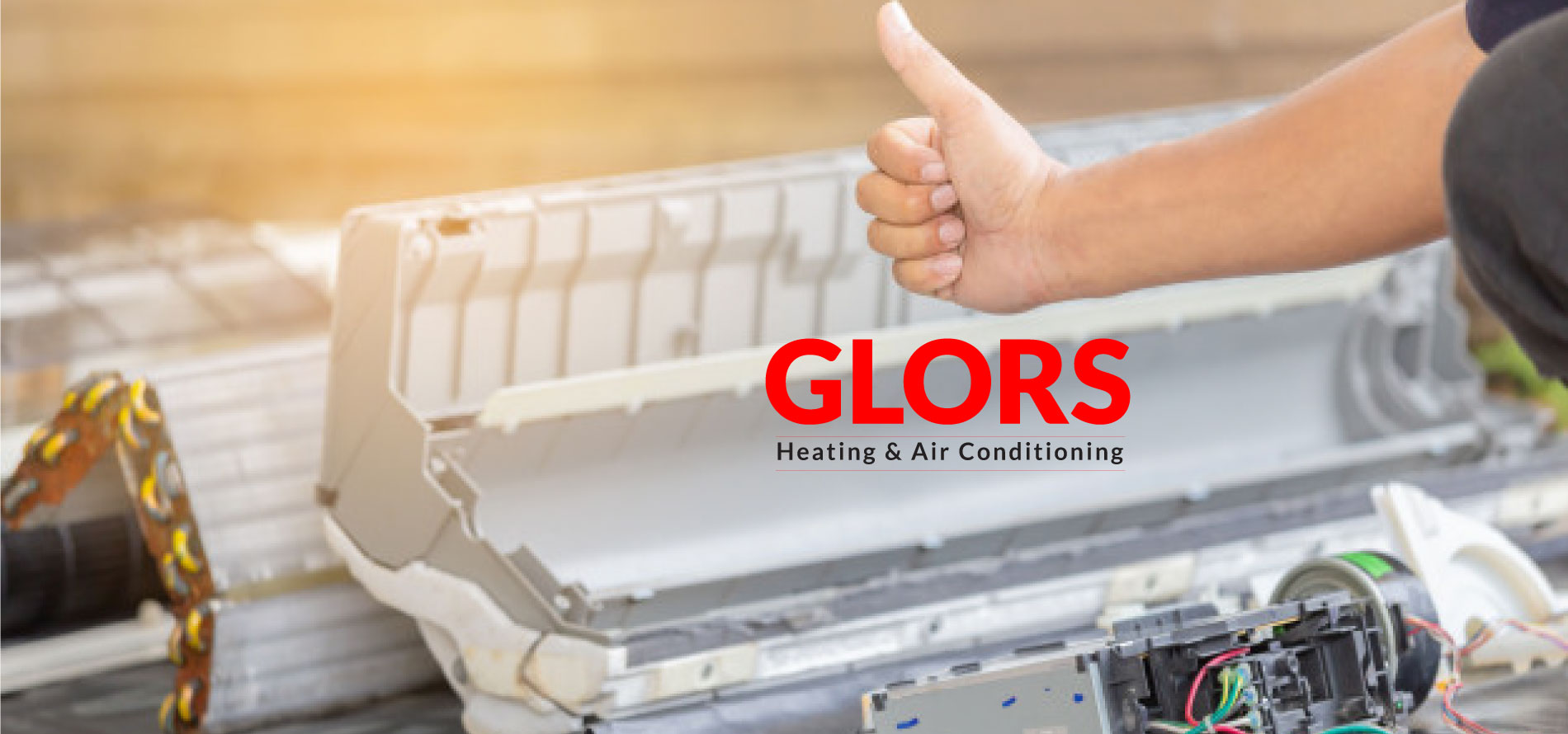Why Doesn't My AC Seem to Be Cooling Faster?
Many people feel that their air conditioner is running but not cooling their home quickly enough. There are several factors that can impact an AC's performance. In this blog, we’ll explain some of the most common reasons your AC might not be cooling efficiently — we hope this helps! If need any assist please reach out to our Glors experts’ team
Note:
- "We assume that your furnace filter is clean, your furnace fan is working properly, and the AC condenser (outdoor unit) is functioning well."
- If you want to verify whether your AC is working properly, check the return air temperature (air going into the furnace) and the supply temperature (air coming out of the furnace/AC coil). If the temperature difference is more than 15°F, your AC is doing its job.
- You can also check the suction copper pipe (usually the thicker pipe covered with black insulation). If it feels cold, that’s another sign your AC is functioning properly.
- However, check for any ice buildup on the same pipe. If you see ice, turn off your AC immediately and contact a professional to inspect the system
Correct AC Tonnage
The size of your AC (in tons) must match your home's needs based on your geographical location square footage.
General guideline for the Toronto area:
- 2 Ton AC for a 2,000 sq. ft. home
- 3 Ton AC for a 3,000 sq. ft. home
Note: The basement is not usually included in this calculation.
This is because cold air naturally settles, while hot air rises — a basic principle of physics. That’s why basements are typically the coolest part of the house, the main floor is moderate, and the upper floors are usually the warmest.
- Refrigerant Levels
Refrigerant pressure plays a huge role in your AC's cooling performance.
Make sure to get your AC professionally serviced at least once a year to ensure refrigerant levels are correct.
If Your AC is Fine, But It Still Feels Warm
Assuming your AC is properly sized and in good working condition, here are some other factors that may affect how quickly your home cools:
- Furnace Filter
A clogged furnace filter blocks airflow, reducing cooling efficiency and potentially leading to ice buildup on the evaporator coil.
Tip: Check and replace filters regularly, especially during peak AC season.
- Outdoor Condenser Unit
Ensure the outdoor unit (condenser) is clean and free from dust, leaves, or other obstructions. A blocked condenser can severely affect performance.
- Air Vents
All vents in your home should remain open, even in rooms you don’t use. Also, keep interior doors open.
Myth-buster: Closing vents in unused rooms doesn't speed up cooling elsewhere — it can actually reduce the total air volume delivered and put pressure on the system.
Think of your house as one closed envelope — for optimal performance, cool air should flow freely throughout.
- Humidity
Your AC works harder in high humidity. Excess moisture in the air slows down the cooling process.
Make sure your humidifier is turned off in summer. Aim for indoor humidity around 40%, which is also recommended by health professionals.
Tip: Use a dehumidifier during summer to help your AC perform better and make your home feel cooler.
Example:
- House A: 23°C with 70% humidity
- House B: 23°C with 40% humidity
Even though the temperature is the same, House B will feel cooler due to lower humidity.
Science says: Moist air holds heat longer than dry air.
- Leaky Doors and Windows
Check for air leaks around doors and windows. Warm, moist air from outside can enter through small gaps, adding to your AC’s workload and slowing down cooling.
- Attic Insulation
Insufficient attic insulation allows heat from the roof to enter your home. Make sure your attic has the proper amount of insulation to keep your home cool and energy-efficient.
- High Outdoor Temperatures
Hot outdoor temperatures heat up walls, bricks, and rooftops. These surfaces retain heat and radiate it indoors, making it harder for your AC to cool your home. This is normal, and your AC may take longer to reach your set temperature during extreme heat.
- Use of Curtains and Blinds
Use curtains or blinds to block direct sunlight, especially during the hottest part of the day. This reduces heat gain through windows and keeps your floors and furniture from heating up the room.
- Thermostat Settings
We recommend setting your thermostat to one comfortable temperature and leaving it there, especially during hot summer days.
Avoid this mistake:
Don’t set your thermostat higher (or turn off your AC) when you leave for work in the morning, then lower it when you return.
By then, your home — including walls, floors, and ceilings — will have absorbed heat. Your AC will struggle to cool it down and may run non-stop, increasing wear and tear on the system.
- Party Time
Everyone loves a good get-together! But be aware that more people = more body heat and moisture, which slows down cooling.
Also, doors tend to open and close frequently during gatherings, bringing in warm, moist air.
Final Thoughts
We hope this information helps you better understand your AC system and how to get the most out of it. If you’re still experiencing issues, feel free to contact us!
Serving You for Over 17 Years 🙏
GLORS Heating & Air Conditioning Inc.
📞 647-883-4051
🌐 www.glorsheating.com



